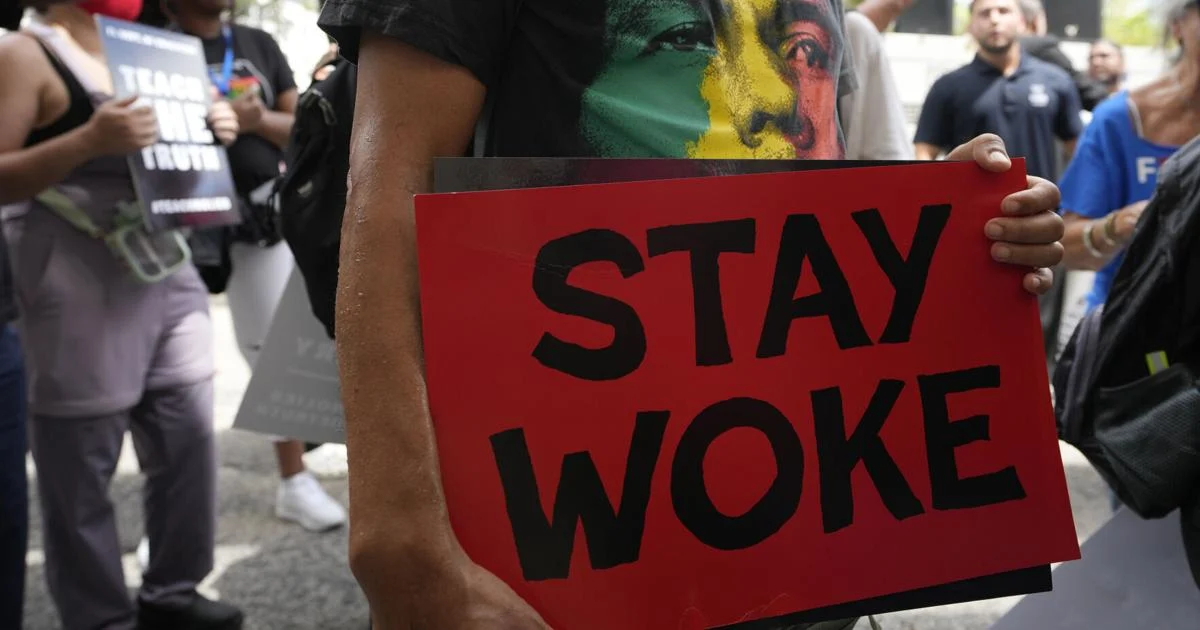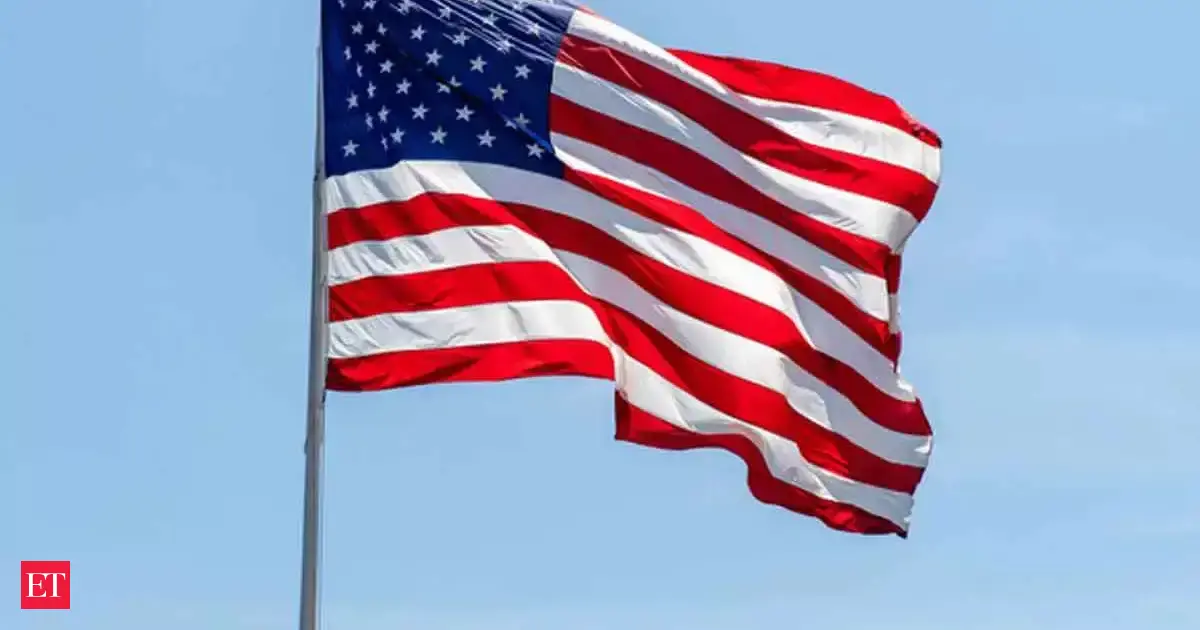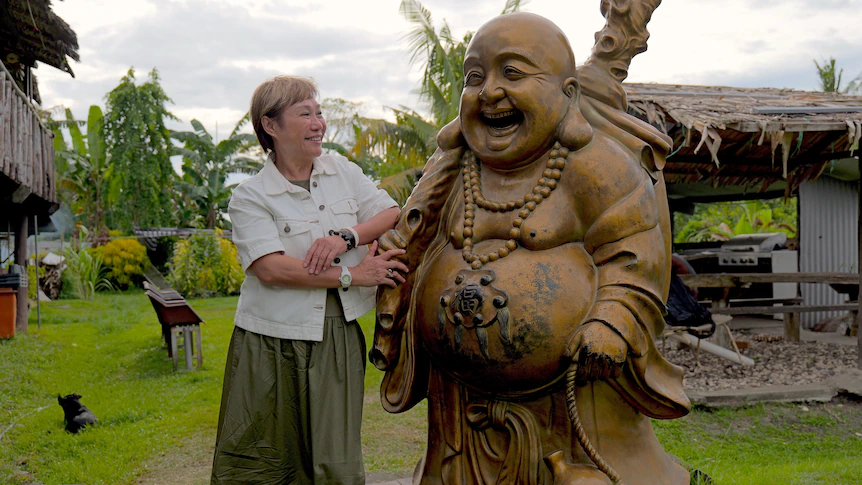
The expression “stay woke” started as an affirmation for African Americans.
In the past decade, some Republicans — and some Democrats — used it as a pejorative for people thought to be too “politically correct,” another term that took on negative connotations.
President Donald Trump pledged to review content at the Smithsonian Institution for being “WOKE” and where “everything discussed is how horrible our Country is, how bad Slavery was.”
Texas Gov. Greg Abbott declared that government would keep “woke agendas” out of universities and K-12 schools, including “woke gender ideologies.”
On Tuesday, Defense Secretary Pete Hegseth said he will end “woke” culture in the military. Referencing diversity, equity and inclusion efforts, transgender troops, environmental policies and other disciplinary rules, he said the military was hamstrung by political correctness.
“America is no longer woke under President Trump’s leadership. The word ‘woke’ represents radical ideologies that are used (to) divide the American people and harm our country,” White House spokesperson Liz Huston said.
The history of ‘woke’
“Wokeness” originated decades ago as African American cultural slang for having awareness and enlightenment about racism, injustice, privilege or threats of white supremacist violence.
Several historians trace the idea to a 1923 compilation of speeches and articles by Jamaican-born Black nationalist Marcus Garvey. In one essay, Garvey wrote, “Wake up Ethiopia! Wake up Africa!”
Another reference appears in 1938 in the song “Scottsboro Boys” by blues artist Lead Belly, whose real name was Huddie Ledbetter. The tune follows the true story of four Black youths unjustly convicted by an all-white jury of the rape of two white women; they were later freed. The lyrics warn Black listeners to be careful and “stay woke. Keep your eyes open.”
Gerald McWorter, a professor emeritus of African American studies and of information sciences at University of Illinois Urbana-Champaign, says woke was about having a voice after hundreds of years of Black suffering going back to the African slave trade.
The phrase also popped up in a 1962 essay by novelist William Melvin Kelley for The New York Times under the headline, “If You’re Woke, You Dig It.” Kelley’s widow and daughter believe he heard the term while walking around their Harlem neighborhood, said Elijah Watson, a pop culture writer and editor who wrote about Kelley, who died in 2017.
A reawakening
Singer-songwriter Erykah Badu often is credited with reviving the term. Her song “Master Teacher” on her 2008 album, “New Amerykah: Part One,” includes the refrain “I stay woke.”
After a white police officer shot and killed 18-year-old Michael Brown — who was Black and unarmed — in 2014 in Ferguson, Mo., “woke” and “stay woke” became galvanizing calls in the growing Black Lives Matter movement, which drew support from other racial groups.
Listen now and subscribe: Apple Podcasts | Spotify | RSS Feed | SoundStack | All Of Our Podcasts
Woke also became popularized by white liberals who wanted to show they were allies.
The war on woke
The backlash bubbled up in the 2010s, amid discussions about including more Black history in American history lessons. Many people said bringing “critical race theory” to schools was meant to program white children to feel guilty.
In 2022, Florida Gov. Ron DeSantis signed the Stop W.O.K.E. Act, which banned teaching and business practices based on race and gender. The law is on hold after a federal judge deemed it unconstitutional.
Democratic politicians who purport to be champions of wokeness and DEI have done little for Black people, so woke has no sway as a rallying cry, said George Pearson, a former chair of the Illinois Black Republican Coalition. He also thinks it’s unfair that those who do not support “woke-ism” are told, “You’re racist. You’re a homophobe. You’re a bigot.”
Even among liberal Black Americans, there is debate whether the intention of woke does more harm than good.
Who says it now?
In Watson’s experience, woke is no longer part of Black vernacular; if he hears it from anyone in his social circles, he noted, it’s almost always said “in jest.”
Some progressives are trying to take back the word.
“Make no mistake, empathy is not weak or woke,” actor and activist Jane Fonda said while receiving the Screen Actors Guild lifetime achievement award. “By the way, woke just means you give a damn about other people.”
Seena Hodges started a business as a DEI strategist for individuals and groups in 2018 and called it The Woke Coach. She and her team consult on everything from workplace interactions to best recruiting practices. She touches on inclusion for groups from people of color to breastfeeding mothers.
The “bastardization” of woke and DEI as words akin to slurs doesn’t bother her, she said.
To her, woke is about awareness. “What it really boils down to is helping people develop a more acute level of emotional intelligence,” she said.
___
Associated Press writer Christopher Megerian in Washington contributed to this report.
Get Government & Politics updates in your inbox!
Stay up-to-date on the latest in local and national government and political topics with our newsletter.
* I understand and agree that registration on or use of this site constitutes agreement to its user agreement and privacy policy.



